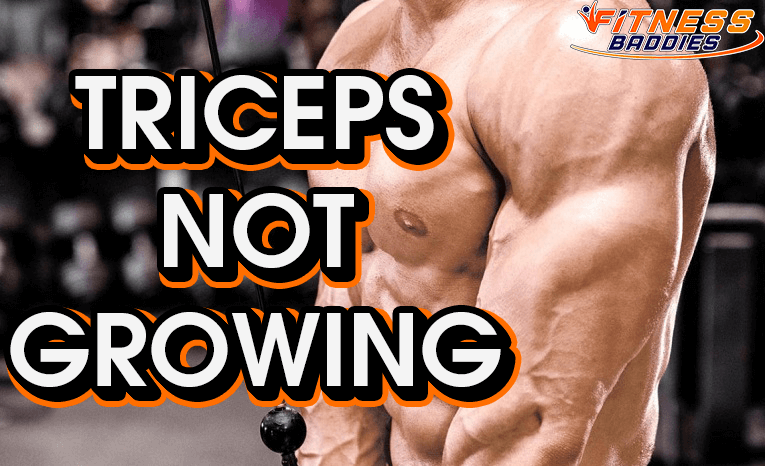“Moderate and balance” your attitude and expectations, not your actions
“Moderation includes extremes” – Unknown
(I can’t remember if I made that up, or I read it somewhere, but either way I can’t find a source. If no one finds one, I’ll take credit eventually. If someone knows, please aware me.)
There are two sides of the discussion about what “balance” in diet, training and getting fitter/healthier means.
On one side its:
“It takes time, actionable steps, what’s doable, habit change first, do what you can, accept yourself…..”
and then
“Do the work, its hard, it will require effort, you have to be willing to truly change, show up, put in effort, do more over time, WORK MODA ******…”
Both are true in whatever context applies to any one individual. You need the “balance” of both arguments about “balance” in fitness.
Yet, in respect to context, most people need to moderate their expectations and their attitudes, not their actions, or their lack of action. They need to act more.
Adaptation is; the physical results of change happening. To induce adaptation, to get it, and move towards a more fit, leaner and healthier body means you have to be succeeding in doing enough of the right work and recovering from it, to reach new levels of “fitness”. You must create the right environment for growth through diet, exercise, and rest.
Along the way you have dips and peaks in energy and performance physically and mentally. Hard days and easy days. Blow-my-habit days, and didn’t-plan days. Days that suck and days that make you feel like a Greek god gripping the iron of destiny as you thrust it through space to grow bulging glutes of peace (personal fantasy here, don’t judge).
Those peaks and valleys with the in-betweens of plateaus and rest (off-season?), is what programming cycles attempt to plan for and predict.They attempt to tell you how long till you are “more fit”. How long until “you can expect this about your body”. Programming principles were developed for sport competition, yet the principles apply to anyone seeking physical change that results in higher “fitness levels” and increased physical ability.
But for general fitness, we are missing something.
How do you predict people and their commitment level, their “readiness to change”?
How do you predict the time it takes for someone to learn what needs to in order for change to actually occur in action, or for change to speed up?
How do you predict when enough of the right work will happen for change to reach “extremes”, for results to be visible? For change to reach the “after” pic? How do you predict how long it will take when there are so many uncontrollable and uncertain variables in general fitness populations?
In competitive athletics one can be more certain about physical outcomes to a certain extent. Because we have a firm measurement; performance getting better or worse over time. You can work backwards and forwards in time more clearly to establish a more specific prediction and plan.
With general fitness, the principles are the same, but the “results” are often much slower, more vague and rely on more pieces being addressed. Evidence-based, simply means applying the correct principles established for physical change in a human body. Applying strength and conditioning principles is for everyone. We know a lot about how to make a human body physically stronger and better.
I joked with my client the other day, that I cannot “literally come and put you to bed at the right time”, but that their constant fatigue limits their body’s ability to adapt to ANYTHING they are doing.
There are far more “types” of people, then there are “types of sport”. Billions.
When we talk about the “middle ground of moderation and balance” we are referring to an idea about how much needs to be done to account for the incredible number of variables that need to be influenced in order for someone to see results.
A lot of them are psychological and emotional changes that need to occur for new habits to be implemented. Not just physical. They physical and the psychological = you. The person you are and the decisions you make.
Programs, cycles, timelines, etc all attempt to predict or define what “it” (that balance), should look like in a physical sense in actual action.
“Do this for training.”
“Eat this to lose fat.”
“Address this habit.”
“Get this rest after this workout.”
You don’t actually know what it means in action until you start doing it. Until action begins.
Here’s what the best coaches always say:
It’s not the program that matters most.
Why do they say that? Because you can’t really predict people. You can’t take away personal choice (though, hey in some countries they try).
In any sport the demands of the sport are much more precise and knowable. You can watch basketball and “know” that someone must jump high. In baseball, a batter can only hit a ball a certain number of ways. Athletes must have certain physical abilities related to their sport. This is “sport specific”. Add on distances, weights, heights, lengths, histories of athletes, competition dates, etc etc and you can predict with more certainty than less certainty, what someone needs to do to get “good” at a sport physically, and for a performance at a specific point in time (competition date).
But “good at getting healthier”? That’s not very definable. The “general population” who desires better health and fitness (you, me, most people) is huge and has endless variety in who they are, what they need and where they are starting.
What should any one individual do at *this* point in their life with *this* body? You cannot definitely say in absolutes *what* a wide variety of people should do to “get fit”.
Yet, this is the premise “fitness” as an industry works off of.
“Just do this and you will get this.”
There are a million possible ways to get fat loss or muscle gain. That is why there is a huge and confusing “fitness industry”. While there is always a better plan and a better way of coaching, who gets to decide that? You? Someone you hired? The internet? That book? That famous celebrity trainer? How do you decide on the quality of your information? How do you decide who you listen to?
“The right plan” is not definitive in any one way, because what it depends on is who you are talking about.
We all start off with what we know and see, what is in our view. Not with the knowledge of what we don’t.
What “we know about fitness” from what we “see” in our social media, print, TV, diet books, is pretty fucked. There is no easy way to say it.
The best application of physical principles for physical fitness change, still comes from the world of strength and conditioning science, and the best coaching principles from the best coaches who get the best results. The ones who pair their knowledge with experience, and push learning and growth not dogma.
From a coaching perspective, we often see the contradiction of what someone needs with what they “want” from “what they know” of fitness. And its hard to get around.
300 lb Jane who wants to lose weight and get strong will need something wildly different than 155 lb Joe who just had knee surgery.
Getting healthier for 32 year old Mom Jill with 3 kids will have massively different needs than 15 year old Brad who wants to get jacked.
Most people want two things: better health – better body.
Under those two categories are a variety of descriptions of “what this means” to any one person.
Jane really might mean “climbing the stairs without pain and losing her belly fat” except she’ll pick “I want abs.” Joe will think “building muscle in my legs and playing soccer again”, but focuses on his biceps more. Jill will want “having more energy and looking confident in my bikini again”, but not give up the idea of clean eating, and therefore never really have any available energy from which to support muscle gain.
Brad will mutter “looking jacked.”
Jane could do a ketogenic diet and P90x. Will she succeed? Perhaps. Maybe. She wants to be sure though! “Tell me what will make me lose weight now!”
Joe will be told to avoid squats, no wait, to squat, no wait, not that way, this other way, no wait, agility ladders, no wait……
Jill will drag herself to bootcamps, and work out no matter what (even when she’d rather sleep) and drink juice for lunch….no wait she’s supposed to lift weights and up her protein. No wait…..do the Zone diet and hip thrusts….
Brad will just curl in the basement. Brad’s doing ok. Except in two years a meme will pop up telling Brad that girls want legs and ass, not arms and Brad will start doing squats, but “the wrong kind” according to the internet. Brad switches to trying to squat like a powerlifter instead and will be ok. Until he’s told that real men do clean and jerks (not that kind, Brad). And then….
Brad might be ok…let’s skip Brad.
The point is; we are asked (or ask our clients) to define goals, to set timelines, to name specific “parts of their body” to change. And then we ask them to have “moderation” and realize that “it takes time” and “change one habit at a time”.
To know what we want. To know, to know, to know. To wait, to wait, to wait. To work, and work more.
But are those specific goals the ones that matter first? No. They usually don’t. Not even close.
How do you describe “health and strength” to someone who has never felt it? How do you tell someone how MUCH needs to happen? How do you describe what NOT being fatigued feels like to a Mom who is always fatigued? How do you tell a “type A” (I hate that term btw) client what it feels like to NOT stress themselves out in spin class and WHY “working harder and harder and bouncing around harder and harder” IS NOT what will get them “more fitness”?
A lot of programs, trainers and coaches working with non-competitive, non-athletic populations force people to define something they have never experienced and do not know how to define clearly. And a clear why is what needs to be achieved to begin the feedback loop of positive action that leads to an increase in motivation that leads to long lasting change and fitness.
When asked “what is the goal?”, I can predict a wide variety of responses:
“I would like to see abs.” “I want this % of bodyfat.” “I want this # of squat.”
“I want bigger or smaller *bodypart*”
Most people are starting at a point WAY BEFORE they can be highly specific about anything physical.
Health is not a single quality. Health is: specific to a person, at a point in time and is a continual process. *Health* is the base for physical qualities of strength, hypertrophy, fat loss and performance to be exhibited over time.
In competitive sport, health takes a secondary role. In fitness for general populations it is the primary driver for significant physical changes.
Improving health leads to a body that can respond to stressors placed on it to get physical change, and that includes the working out you are doing, and the changes to your diet.
(The best coaches in sport will attempt to maintain as high a quality of health as possible, because athletes are people first. And its just common sense to have a competitor both as healthy as possible, and as competitive as possible. But in sport, much “health” is sacrificed often. Worth it? Only the athlete gets to answer and judge for themselves. I will not. Some say yes, some say no.)
The physical always matters. But what leads to significant physical change starts with improving a person ability to recover from the stressors places on it, and that includes how you “balance” training and diet.
Why does any trainer worth their salt talk about sleep? About stress management? About recovery? About nutrition?
Because those are the goals that lead to the other ones. The ones marketed as “this is fitness”.
To change your body, you have to change your life.
Your actions cannot be moderate. They must be different. You must do something completely different.
You must think differently. You must sleep differently. You must move differently. You must eat differently. You must train better over time. You must care more over time.
You must build momentum of action over time. Actions that are extremely different than the ones you did to get where you currently are.
And then you will get more of what you want, over time.
In reality:
Strength for 300 lb Jane is getting up and down off her toilet without thinking twice about it. THAT IS strength for Jane. That is where “strength” starts for her. It doesn’t start somewhere else that “sounds better”.
Strength for Joe would be building back up his joint integrity, balance and movement. Maybe he’s doing reverse lunges first.
Eventually strength and health shape and morph into more “athletic of fitnessy sounding” goals, such as “bodybuilding” or “powerlifting” maybe, or “playing volleyball in my league 5x a week”, or even “abs”.
But what fucks up people the most? Extreme attitudes. Not extreme actions. Extreme expectations. Extreme ignorance. Extreme entitlement. Extreme fatigue. Extreme impatience.
Moderation is not to be directed towards action and desire for change. Be extreme there. Change your actions! Feed your desire! But your attitude towards the amount of work it takes, and the time it will take to figure out how to change for good should be moderate. To set yourself up for extreme action, the kind that will really lead to lasting change, moderate your expectations. Balance out your view of reality. Be real about what you are actually doing.
Progress *could* be fast, but it is a game of all your variables. What are your variables? What are the things that must change first, most? What matters most? Are you getting extreme about discovering that?
The only way you can get a bad result from your attempts to change your actions, your diet, your stress management, your sleep and your life is through having a immoderate attitude towards “why” you are doing it.
You are doing it for yourself.
There is no other reason.
You don’t have to do anything you don’t want to do.
Expectations about anything except putting in the work and applying common sense and not letting emotional dips and peaks disrupt you continually is; a moderate attitude.
There is nothing exciting about common sense. Common sense is common in description. Its moderate.
Sleep more Eat better Exercise daily
Care about the people you love
Play around with your words. Consider un-moderating your actions, and moderating your expectations, your entitlement, and your impatience, or admit you don’t want it that badly. That’s ok too.
It’s always your choice.
Changing your health requires a lot of work broken up over significant time. You have to do harder shit. You got to keep at it. You are best served by allowing for the process to start, by doing the the most work you can, the most change possible, paired with a calm, moderate attitude towards what you can expect for the the amount of work you have put in.
Priorities are priorities because they require attention and time. You are allowed to invest whatever time and attention amount you choose.
If you put in a lot, honestly, and with commitment, you will get a lot.
If you can’t you won’t get as much. That’s ok too.
The volume of your commitment, how much of it you put towards fitness and health is always up to you.
People think of “more” as more worry, more panic, more P90X jumping up and down, more internet surfing, more analyzing all your supplements, more training sessions you don’t recover from.
That’s a way to be dumb. That’s not the right kind of “more”. That’s nothing but mental extremes with little physical payback.
It is always up to you.
It is for you. No one else.
It’s hard to go wrong with a moderate, common sense attitude. It basically ensures you’ll find your way to extreme “transformation”; extreme results, extreme return on your investment of time and attention, because it will allow you to act and continue action, and find the “right action” for you, at the time you need it.
Only action matters, in the end.



